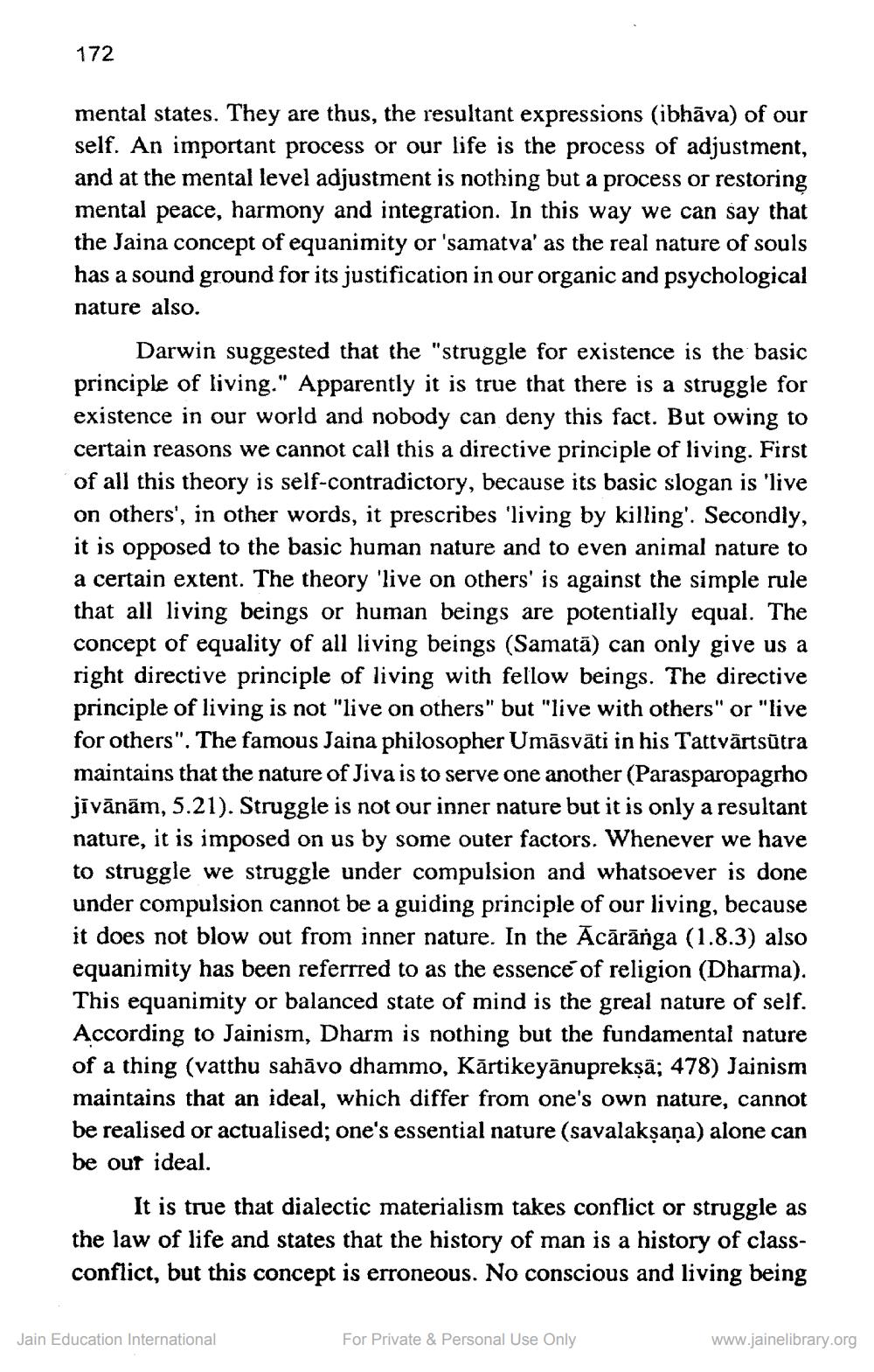________________
172
mental states. They are thus, the resultant expressions (ibhāva) of our self. An important process or our life is the process of adjustment, and at the mental level adjustment is nothing but a process or restoring mental peace, harmony and integration. In this way we can say that the Jaina concept of equanimity or 'samatva' as the real nature of souls has a sound ground for its justification in our organic and psychological nature also.
Darwin suggested that the "struggle for existence is the basic principle of living." Apparently it is true that there is a struggle for existence in our world and nobody can deny this fact. But owing to certain reasons we cannot call this a directive principle of living. First of all this theory is self-contradictory, because its basic slogan is 'live on others', in other words, it prescribes 'living by killing'. Secondly, it is opposed to the basic human nature and to even animal nature to a certain extent. The theory 'live on others' is against the simple rule that all living beings or human beings are potentially equal. The concept of equality of all living beings (Samatā) can only give us a right directive principle of living with fellow beings. The directive principle of living is not "live on others" but "live with others" or "live for others". The famous Jaina philosopher Umāsvāti in his Tattvārtsūtra maintains that the nature of Jiva is to serve one another (Parasparopagrho jivānām, 5.21). Struggle is not our inner nature but it is only a resultant nature, it is imposed on us by some outer factors. Whenever we have to struggle we struggle under compulsion and whatsoever is done under compulsion cannot be a guiding principle of our living, because it does not blow out from inner nature. In the Ācārānga (1.8.3) also equanimity has been referred to as the essence of religion (Dharma). This equanimity or balanced state of mind is the greal nature of self. According to Jainism, Dharm is nothing but the fundamental nature of a thing (vatthu sahāvo dhammo, Kārtikeyānuprekşā; 478) Jainism maintains that an ideal, which differ from one's own nature, cannot be realised or actualised; one's essential nature (savalakṣaṇa) alone can be out ideal.
It is true that dialectic materialism takes conflict or struggle as the law of life and states that the history of man is a history of classconflict, but this concept is erroneous. No conscious and living being
Jain Education International
For Private & Personal Use Only
www.jainelibrary.org




